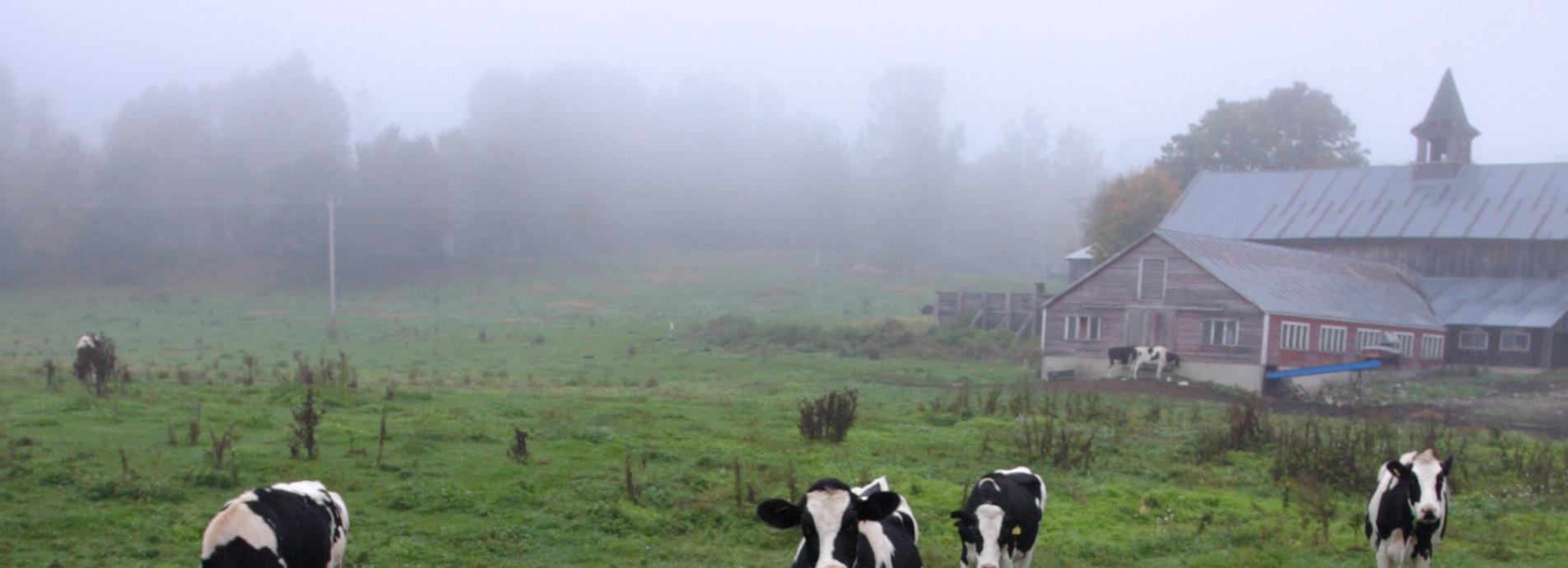NOFA Vermont is proud to be a featured partner of the UVM Food Systems Summit. Almost half of our staff plans to attend - if you'd like to as well, registration closes today at midnight. If you'd like to attend after that point, call call UVM Conference and Events Services at 802-656-5665. Walk-in registrations will be accepted on a first come, first served basis.
Who should own and control the food system? How much additional food production capacity do we need and where? How do cultural values influence food practice? Food systems scholars and leaders will address these questions and more when they convene at the University of Vermont (UVM) June 17-18 for the third annual UVM Food Systems Summit to share research and engage in dialogue on the pressing food systems issues facing our world.
With a vibrant local food economy, Vermont is a hot spot of sustainable food system development, and a prime location to explore the innovative models that are providing solutions to the multitude of social, environmental, health and economic problems arising from our broken food system. During the day and a half conference, sessions will address the following themes: the biophysical constraints we face for food production globally, the impact of our geopolitical context on our food system, and the implications of behavior and culture for our food system.
“UVM is a leading academic institution in the transdisciplinary study of food systems, and Vermont is a national model in alternative food system development with its network-based, systems-approach,” said Doug Lantagne, director of the UVM Food Systems Initiative. “Our goal is for food systems researchers, leaders, practitioners, and engaged community members to come together at the summit and expand their knowledge, network with peers to generate future collaborations, identify needs and prioritize future work.”
The summit will transcend the boundaries of academia by incorporating food systems efforts happening outside the ivory tower. Unlike traditional academic conferences, the summit is designed to optimize engagement between scholars and practitioners outside of academia. As such, the summit is open to the public, and the organizers are seeking participation from nonprofits, government, farmers and food producers.
Three keynote speakers will each provide a one-hour talk as well as participate in a panel discussion at the end of the summit: Rosamond Naylor, director of the Center on Food Security and the Environment at Stanford University, Eric Holt-Giménez, executive director of Food First/Institute for Food and Development Policy, and Nicholas Freudenberg, Distinguished Professor of Public Health at City University of New York’s School of Public Health and Hunter College.
Panel discussions will feature research and examples of how local-level responses are responding to globalization in the food system. To promote dialogue among all participants, all sessions will include time for Q&A and engaged dialogue with the audience. Participants will enjoy local foods and drink during a Taste of Vermont reception.
[post from Alison Nihart, UVM]
Nourishing people, land, & justice through organic agriculture
LEARN MORE

